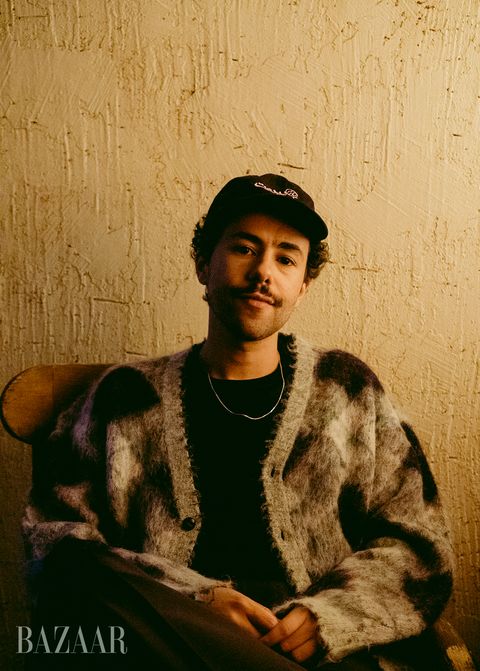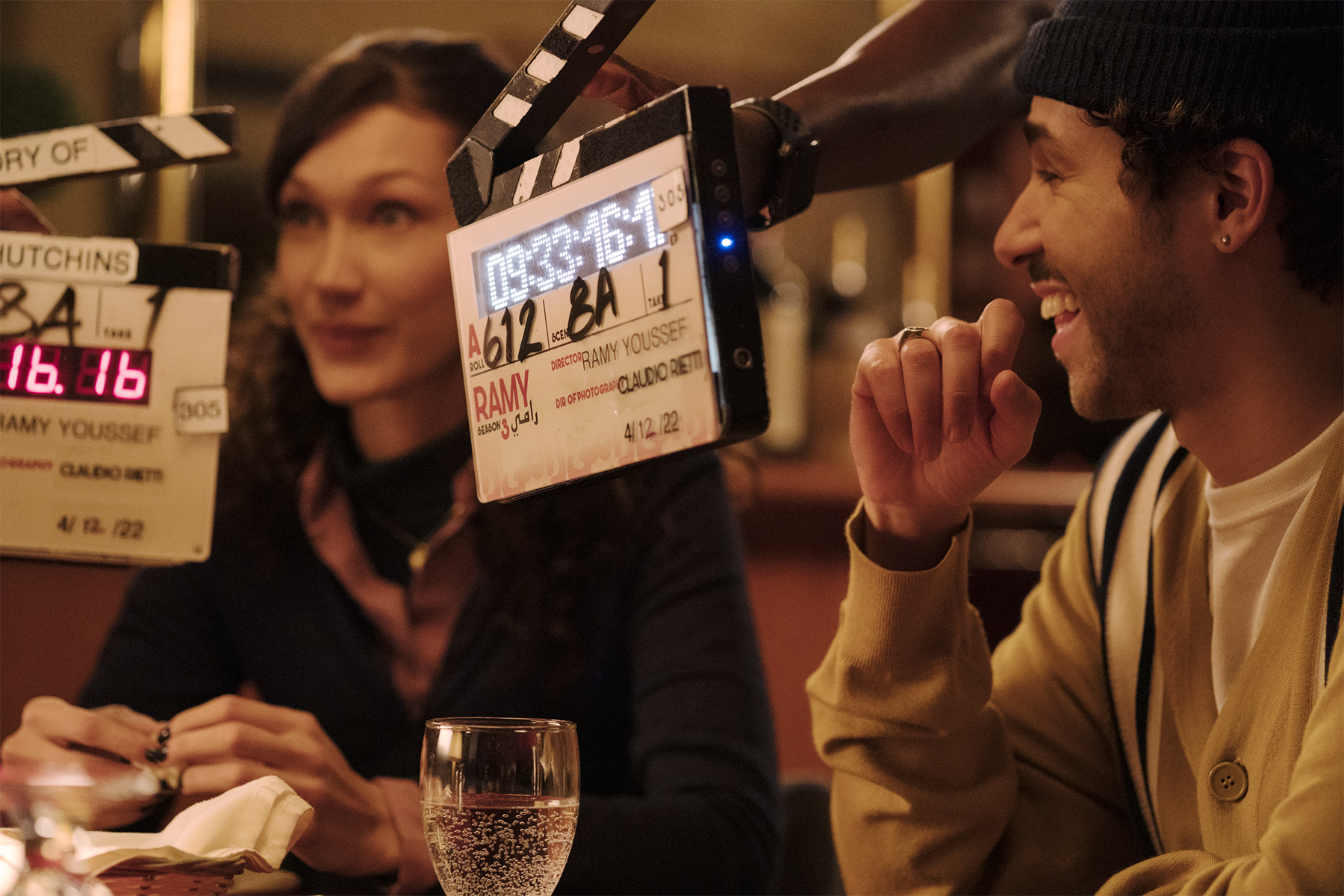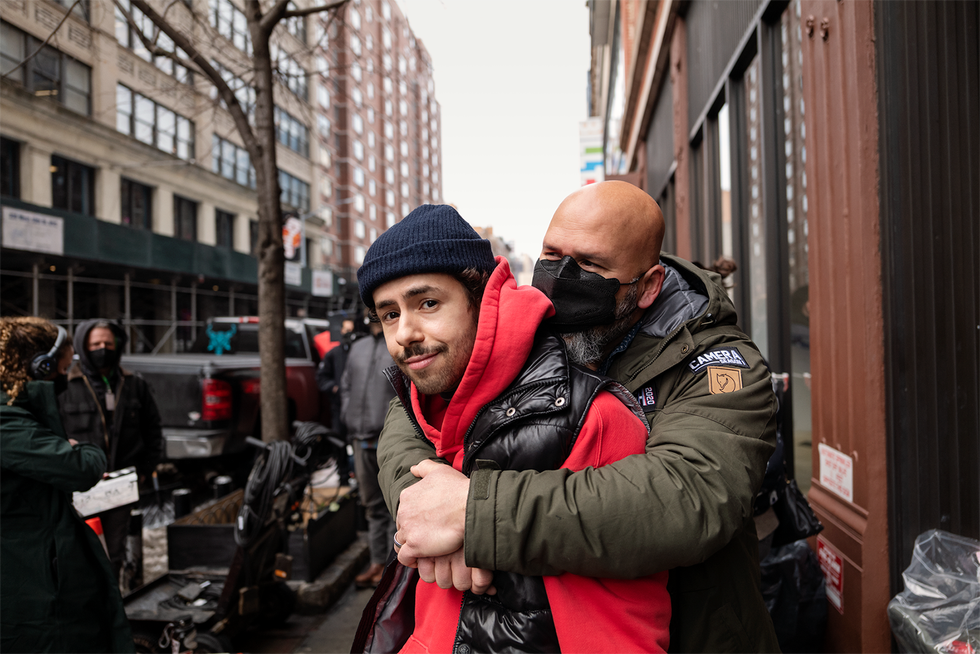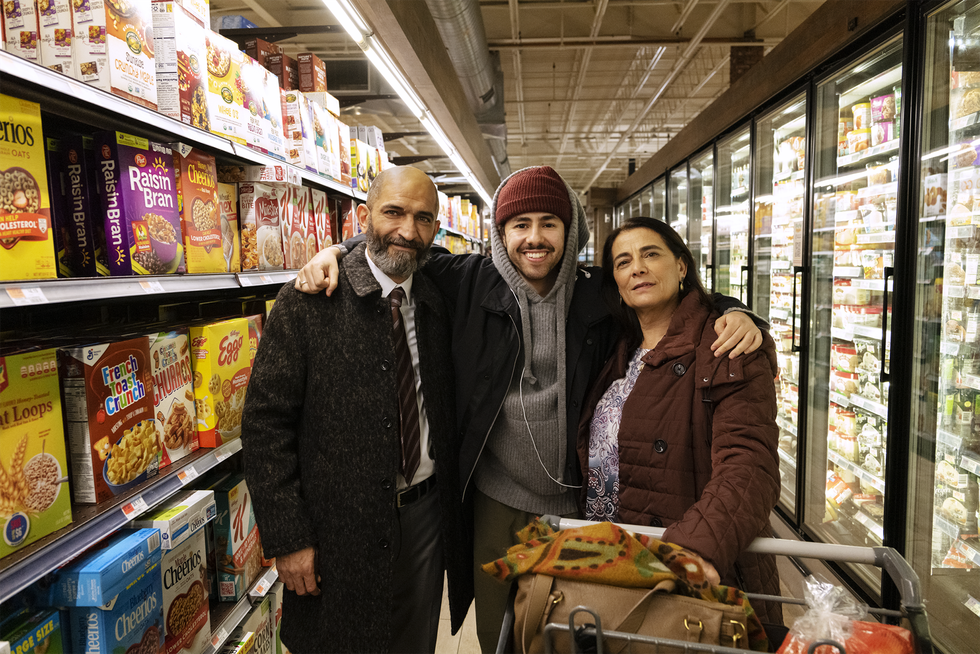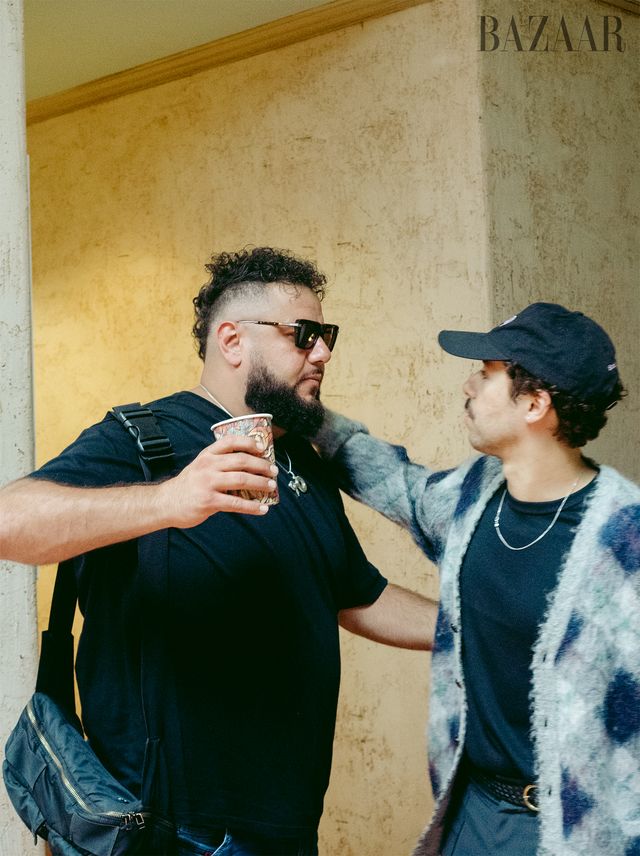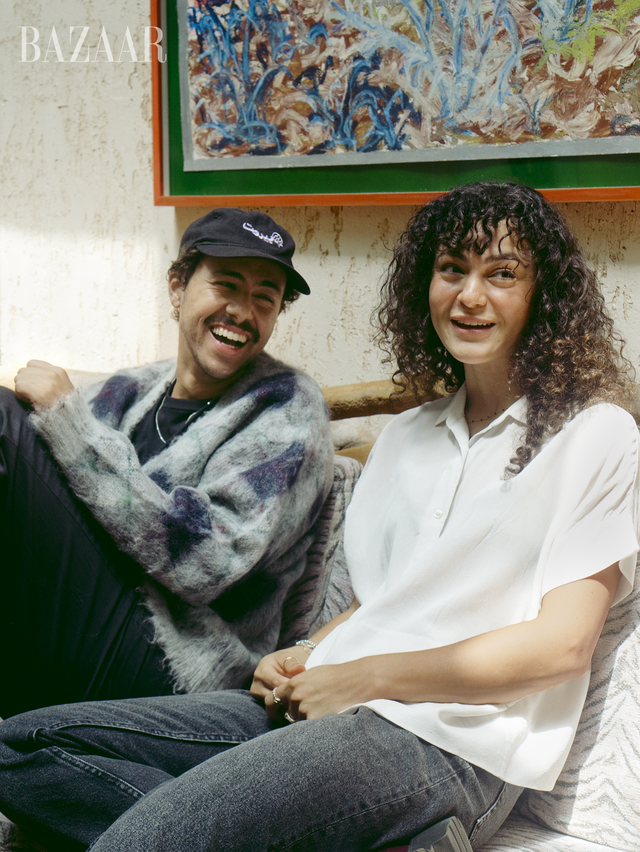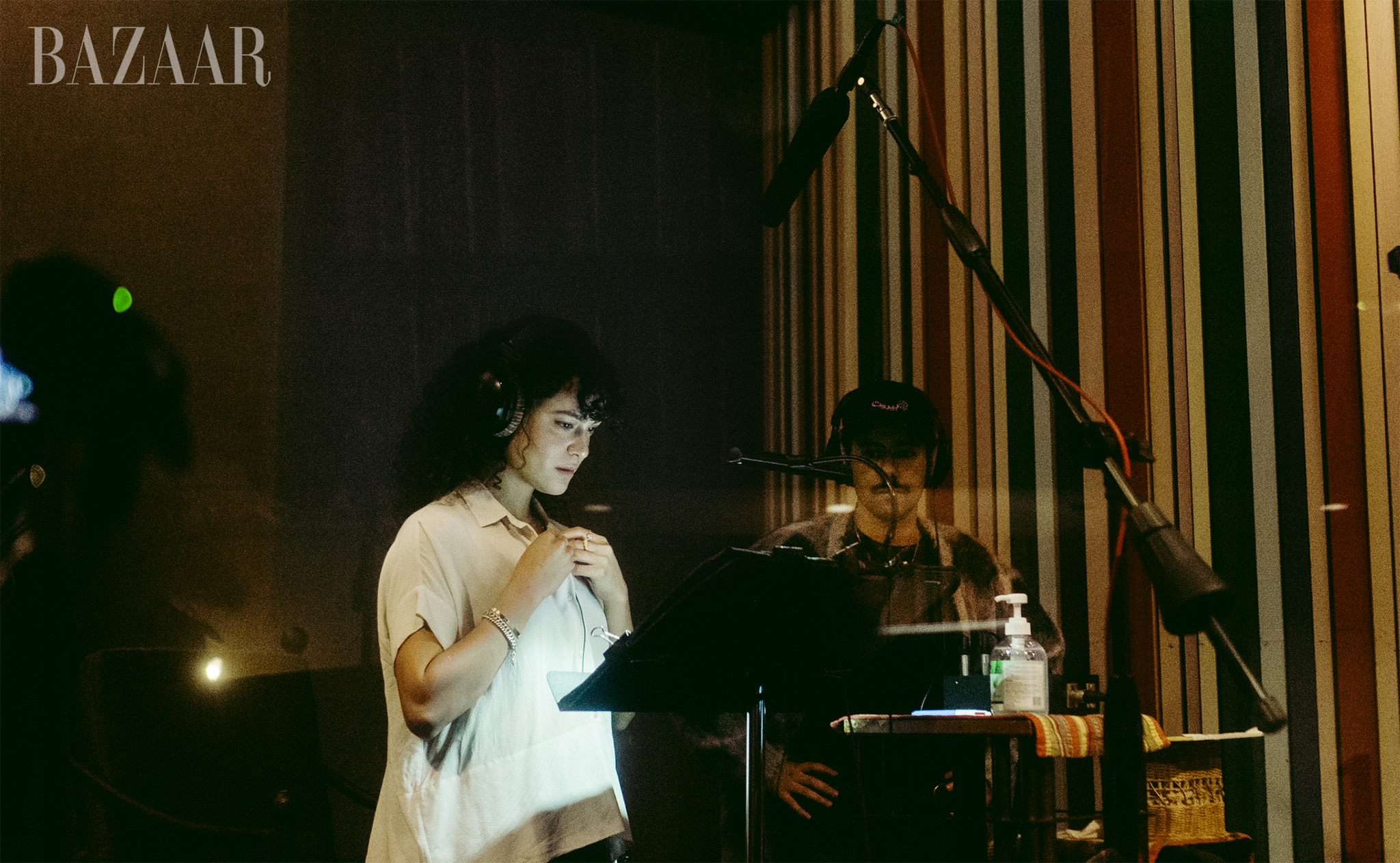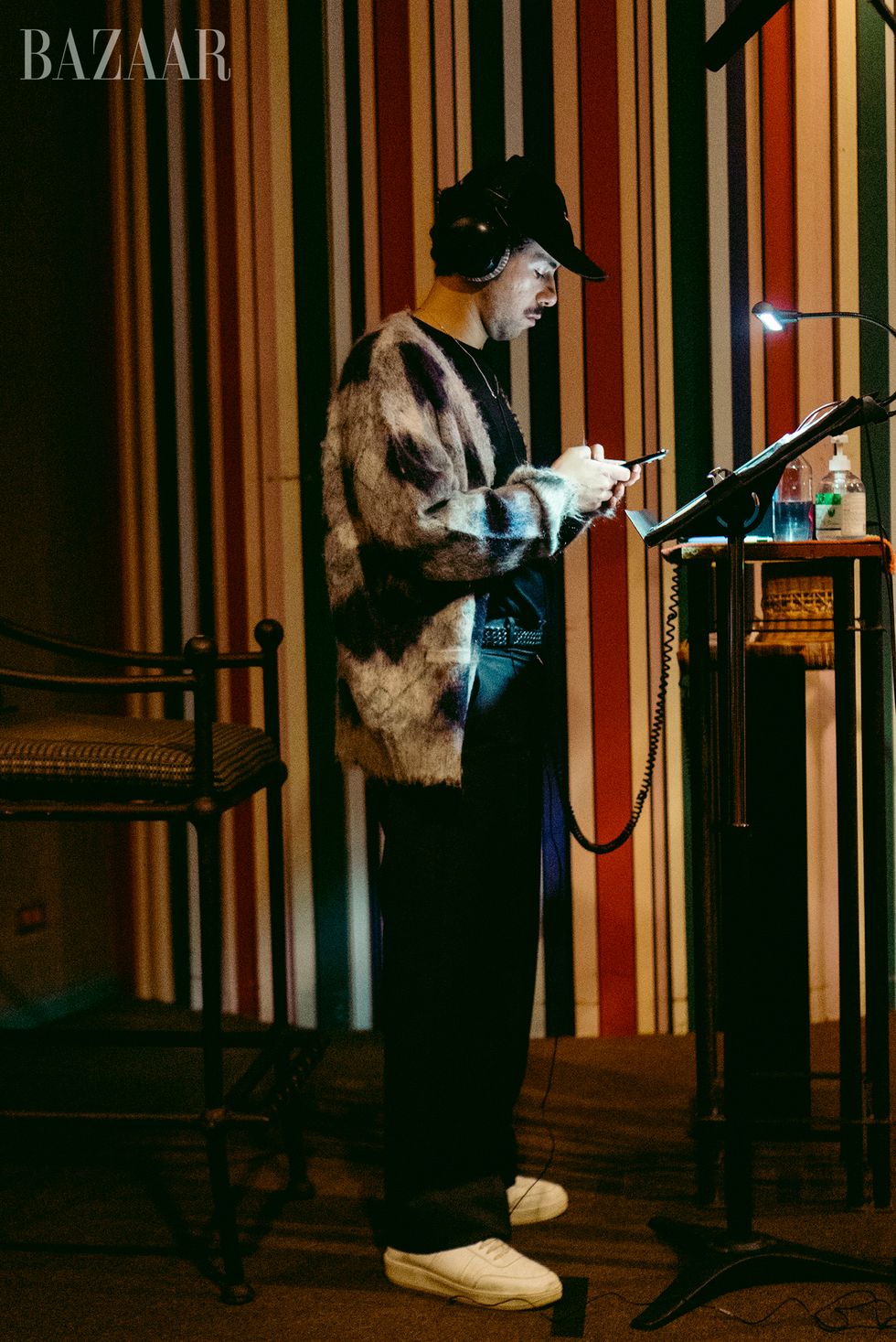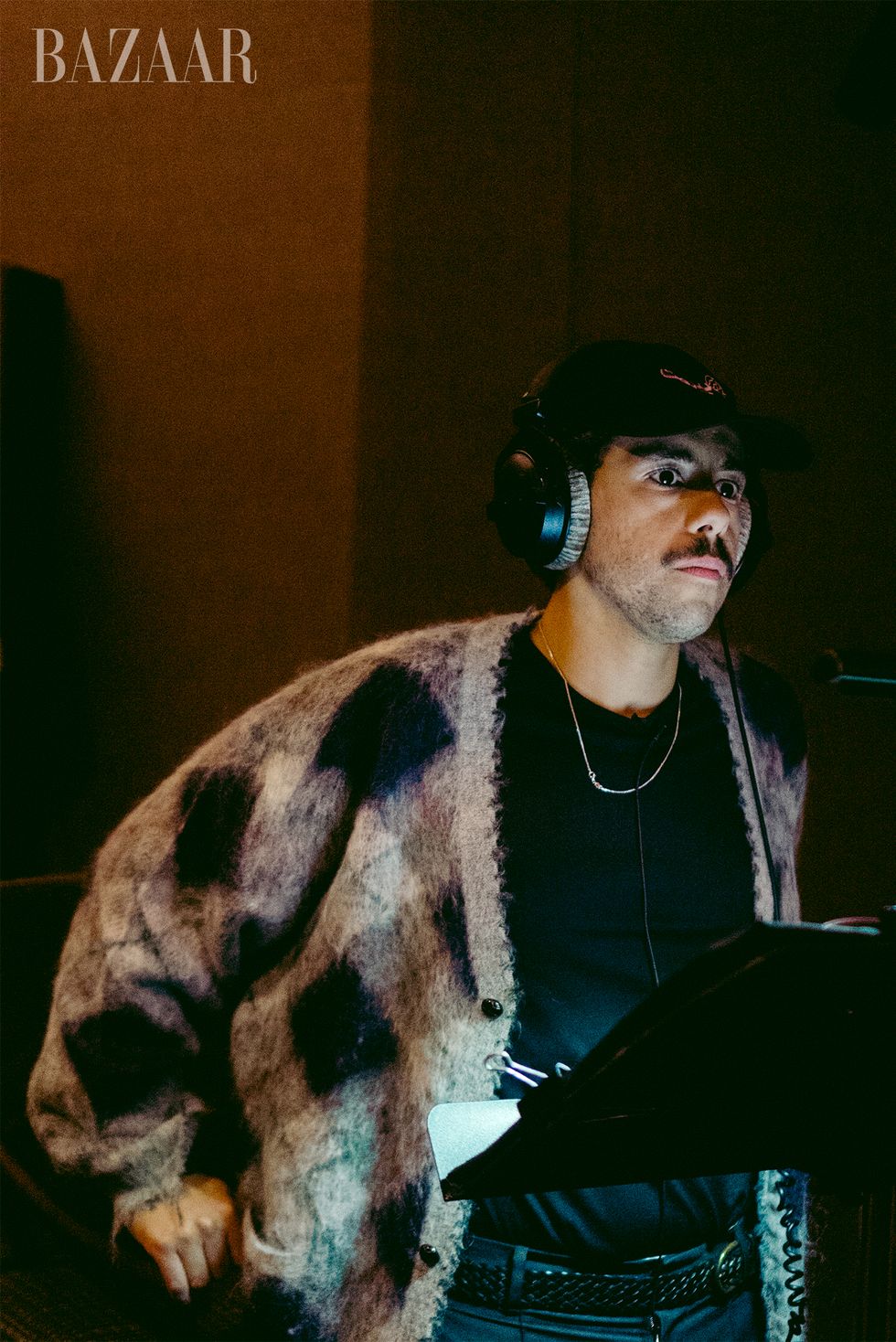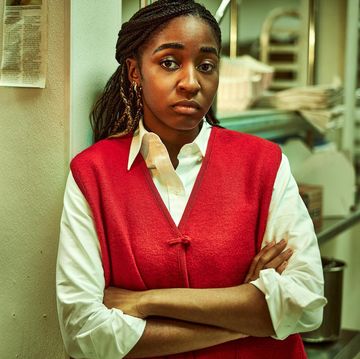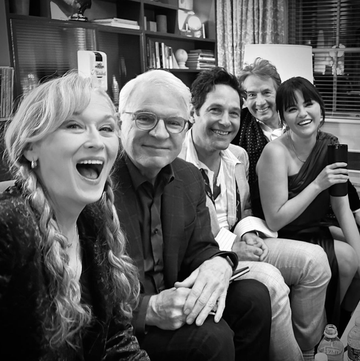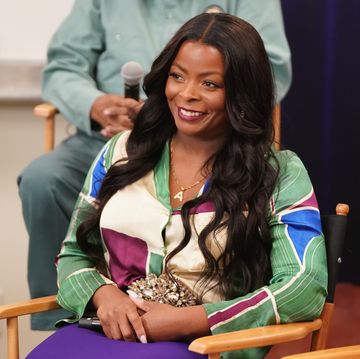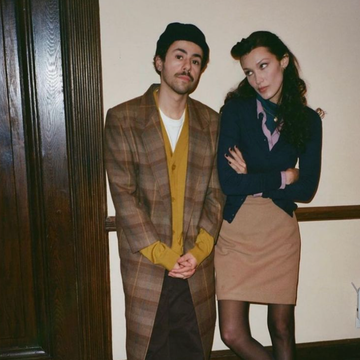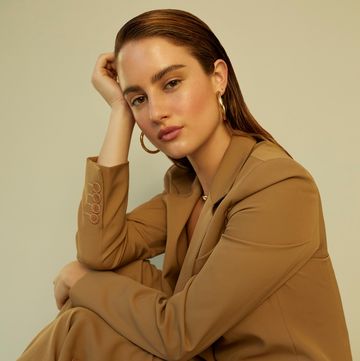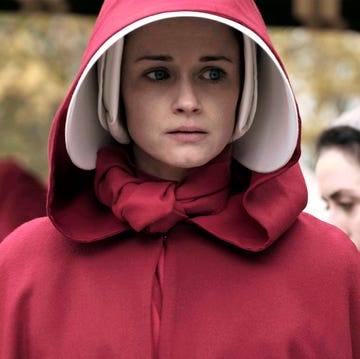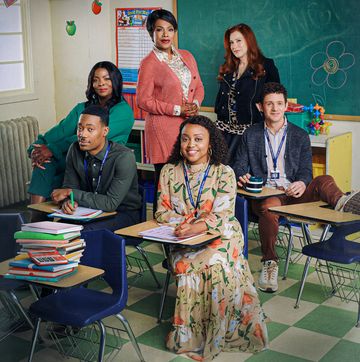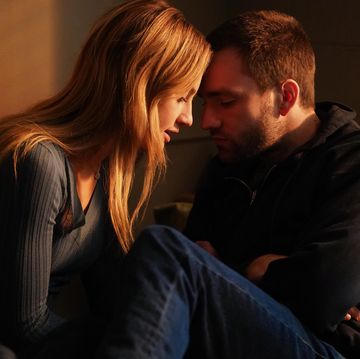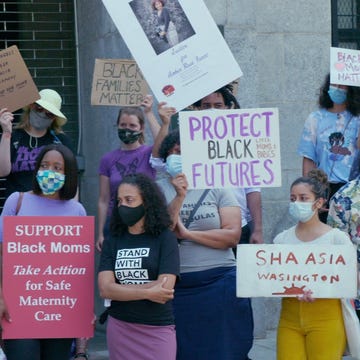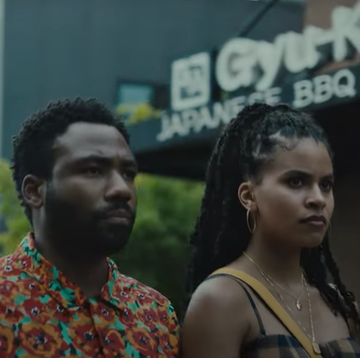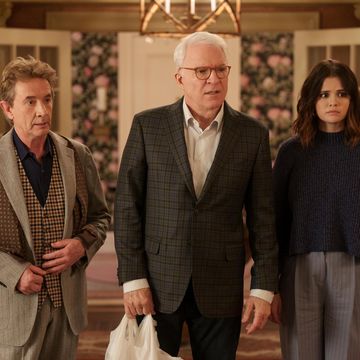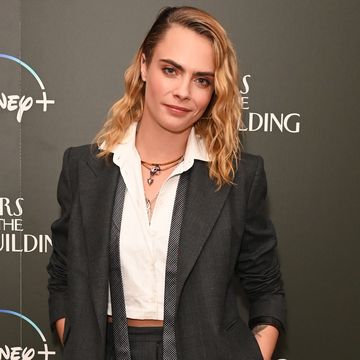In the era of peak TV, it can be hard to remember that television comedy once hewed to an almost-scientific formula: setup, setup, punch line, laugh track, repeat. Take the thoroughly modern Ramy, the critically acclaimed Hulu show by comedian Ramy Youssef and inspired by his stand-up. In it, a millennial Muslim American wrestles with religion, sexual politics, and identity (and usually finds himself outmatched). The show rejects the formulaic practically as a matter of faith. Or, rather, it explores matters of faith and finds them wanting of any tidy formula.
In both form and style, Ramy is beautifully all over the map. It’s meditative and raunchy. It’s about a narrow set of experiences revealing universal truths. Its characters can be loving and messy and downright repugnant—and become all the more relatable for it. “For me, there are no rules to comedy, as long as you’re doing the thing that’s most unique to you,” says Youssef, 31. “That’s my favorite kind of art: You found your potential, you found the thing that you can do best on this earth, and then you’re dancing in that potential.”
Youssef and his writers began work on the show’s third season (which premiered September 30) in February of last year. Here, Youssef reflects on how transforming his stand-up into “something tangible that a character could do and that we could watch on screen” is less about Zoom meetings, shoot schedules, and draft deadlines than about the intellectual, emotional, and, yes, spiritual process of seeking answers to life’s big questions—and then turning them into one big joke.
I wanted to have a conversation about faith that could be more nuanced than the one I was seeing. I felt like there was this binary with faith, where you were either in or you were out and there was no in between in which somebody could be navigating and struggling. I wanted to portray that act of seeking—the struggle that comes with seeking and the excitement that comes with seeking and the failure that comes with seeking.
When we first pitched the show, I brought in this 45-minute stand-up tape. My stand-up always begins with this desire: There’s something I want to say, that should be said—now let me turn it into a joke. It all starts with a desire, and then every desire turns into a joke. So it showed me talking about a lot of stuff that ended up in Ramy: I was talking about belief; I was talking about family; I was talking about romance, about sex. I was talking about topics that were all over the place but through the lens of someone who’s seeking, who’s trying to find their place in all of it.
In my pitch for the show, I said, “Ramy is the hyphen between the words Muslim and American.” He sits on the dash between the two words, dangling his legs, going from side to side. The “Muslim” side of him struggles with talking about sex; the “American” side struggles with talking about God. But the further you go, you realize both Muslims and Americans struggle with both.
A really close friend of mine, Dave Merheje, plays the character Ahmed on the show. We hung out one day, and he brought his girlfriend, who I hadn’t met yet, and we were hanging out for an hour and a half. Then she asked, “Wait, is this what you guys do? This is just like the show. You just sit around and talk about God.” And I said, “Yeah, what else is there to talk about?”
I try to design the show in a way where the characters are doing that digging and that seeking. Whether they’re doing it through dialogue or through their actions, everyone’s interrogating each other and interrogating themselves and interrogating what they believe. For me, we find the storyline when it sparks: “Does this make me laugh?” Or “Does this make me think?”
Maybe one of my favorite lines I’ve written is in the opening of season three. Ramy is talking about fate, and he asks, “How can you choose what’s already been chosen?” Faith tells us that there’s a God who’s laying all this out, but we still have free choice. It’s this metaphysical question that makes him question everything. “Did I fuck up my life, or was it always going to be fucked up?”
The title of the show, Ramy, is misleading—and it wasn’t my first choice; it was just where we landed—because it’s an ensemble show. I’m not doing an autobiography. Everyone affects everyone. We’re pulling in everyone’s experiences and weaving them together.
We have nine people in our writers’ room, and three of them started as PAs or assistants. By the third season, they were in the room in a much more substantial way. So we’re really growing people into it. And our cast members influence so much of what we’re doing because we’re writing to them. I sent scripts to May Calamawy, who plays my sister, and we shaped her story this season together. We sent her every draft, she would read it, and she’d give her thoughts.
The more seasoned actors of our cast anchor us in the way that parents would. Between Hiam Abbass, who plays my mother, and Amr Waked, who plays my father, and Laith Nakli, who plays my uncle, they all bring a whole other level of realness. And since they all come from the place of being artists, there is an openness to a transfer of information and experiences from the elders to the young cast and writers.
The writing then influences the directing in the sense that it’s very character driven. It’s important to me to elevate but also protect the story. So I probably lean toward simpler visuals and less camerawork because I really want to sit with the characters. A lot of that has just been intuitive. I started making music videos and teaching myself how to edit when I was 12 or 13; I started stand-up at 19. So directing to me is all about the timing.
The edit is one of my favorite stages to be in because it’s where the show becomes a reality. When you write, you take something from in your head and you put it on the page. But on the page, it’s really just words. Then you show up to set and you shoot, and you have all these performances that then just exist on a hard drive. But the edit is where there’s a ton of imagination in how you put all those pieces together. This is the thing that you’ve been daydreaming about for almost two years. The edit is really about turning those daydreams into reality.
Soon I’ll walk into my last sound mix, and then we’re basically done with this season. I was thinking about the whole process this morning and about how, especially as we continue to make more seasons, there’s now a business element to making the show. You have all these deadlines and all these other considerations. I think then the act of making art becomes this act of teaching yourself how to daydream faster. At the end of the day, this is a business, but I try to preserve the curiosity, the seeking. It’s what I relate most to in the character of Ramy—that continuous need to be seeking. And it all started to distill for me: Don’t stop daydreaming. Just daydream faster.
Stylist: Sue Choi; Grooming: Paige Davenport for Giorgio Armani
This article originally appeared in the October 2022 issue of Harper's BAZAAR, available on newsstands October 4.
GET THE LATEST ISSUE OF BAZAAR

Nojan Aminosharei is the Entertainment Director of Men’s Health and the Special Projects Editor of Harper’s Bazaar. He was previously the Entertainment Director of Hearst Digital Media, and before that a Senior Editor at GQ. Raised in Vancouver, Canada, Nojan graduated from NYU with a master’s degree in magazine journalism. The late Elaine Stritch once told him, “What the fuck kind of name is Nojan? I’m 89 years old, I don’t have time for that shit.”
